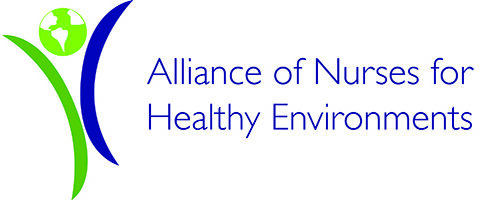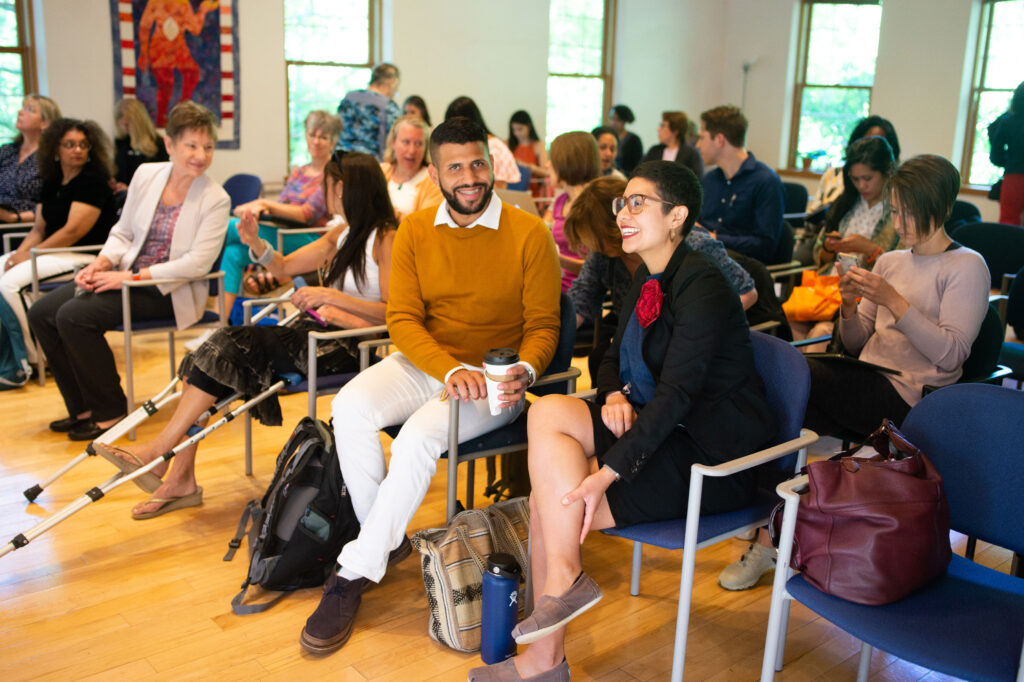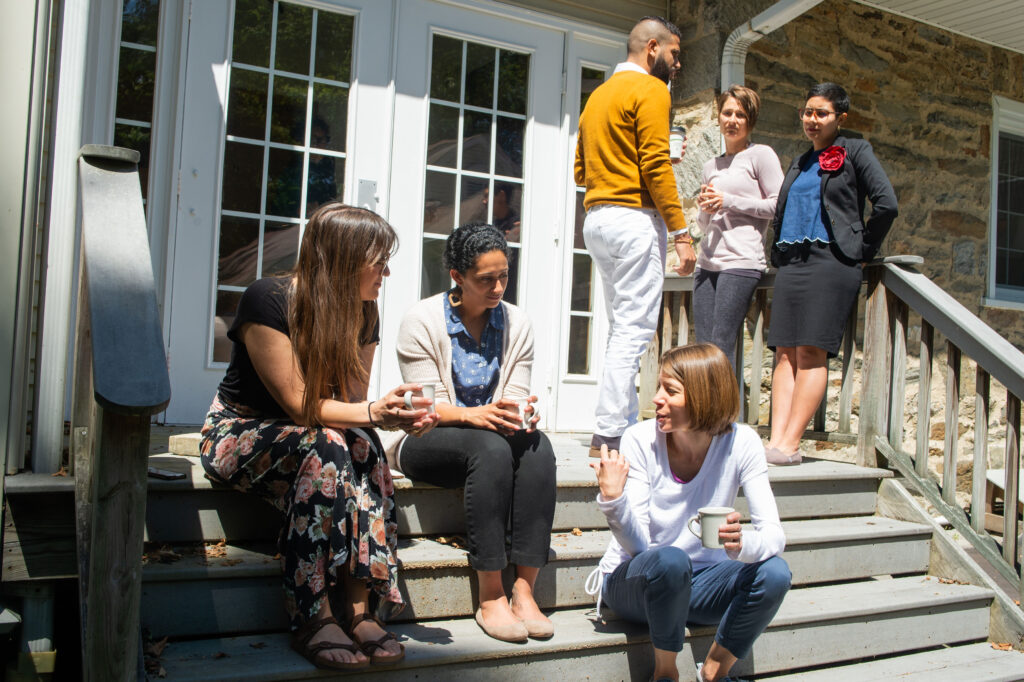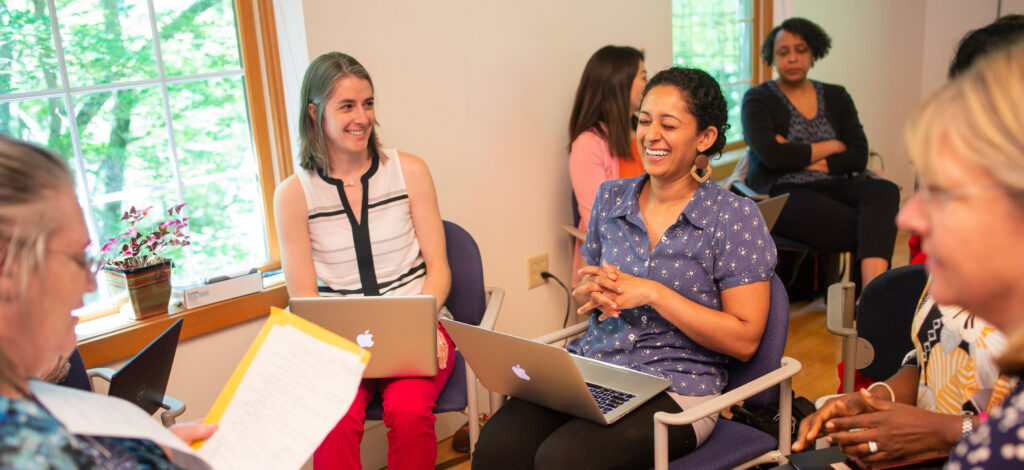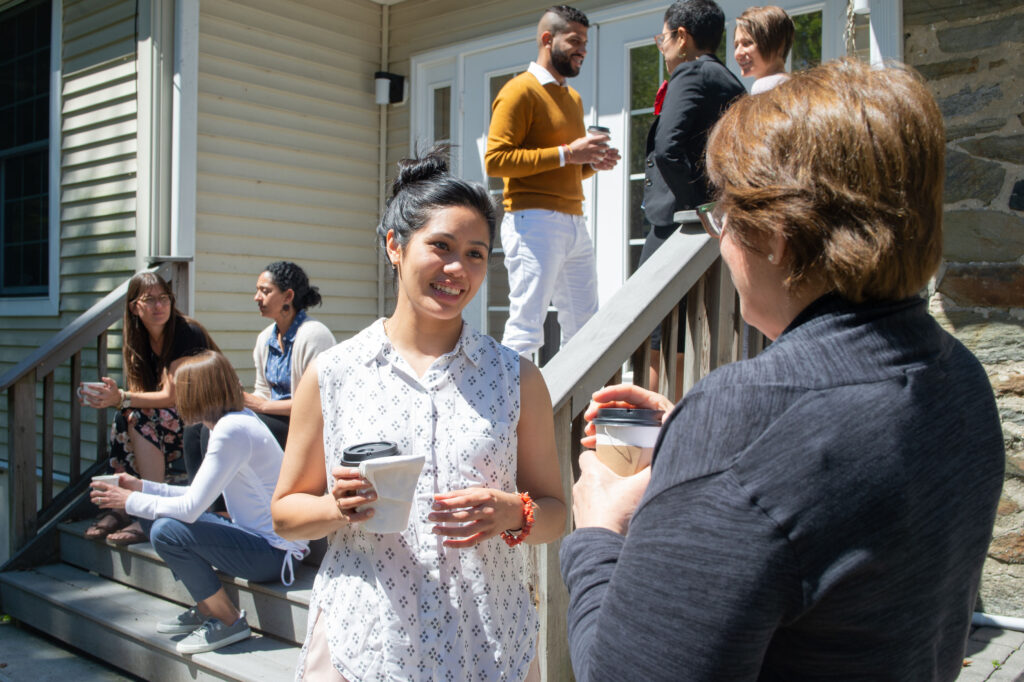Cohort 1
The first cohort of the ANHE Fellowship program was a year-long program that ran from June 1st 2019 – May 31st 2020. Nurse fellows were paired with expert environmental health nurse mentors who helped guide their journey throughout the program. The first cohort consisted of a team of 30 nurse fellows and 10 nurse mentors around the country.
Three nurse fellows paired with a nurse mentor were selected in each EPA region of the USA to participate in the program. Throughout the Fellowship experience:
- Fellows and mentors built community and learned together about critical environmental health, environmental justice, and leadership development topics
- Fellows partnered with communities to address a community-identified environmental health need and build support for community-driven solutions.
- Fellows educated health professional colleagues about environmental health/justice and their Fellowship work, expanding knowledge and engagement of health professionals on critical issues
Convening Events
Throughout the Fellowship experience, ANHE hosted two convening events as a way to build community and strengthen relationships between participants and engage in dialogue with environmental justice and community leaders. The convening events additionally provided an opportunity for the participants to explore their process for transformation and to expand their capacity to respond to environmental health threats in partnership with communities.
Cohort 1 Fellows
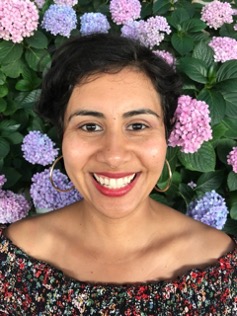
Erika Alfaro BSN, RN
Erika Alfaro, BSN, RN is a public health nurse with my local county, SF/Bay Area NAHN chapter president and council member of the California Nurses for Environmental Health and Justice, and previous past president of SF Bilingual Toastmasters. Since Erika’s involvement with the AHNE fellowship from 2019-2020, she took the lessons learned to heart and since then has hosted webinars on social determinants of health for the farmworker population and helped spread the word to other nurses and healthcare providers. She has worked alongside local non-profits such as Safe Ag, Safe Schools, and Center for Farmworker Families.
Erika has been an active participant to give testimonies regarding the safety of and harmful effects of human health at the Cal EPA, spoken at local news conferences on the dangers of pesticides especially in low income frameworking communities in the Watsonville and Salinas communities. She has written an Op Ed to bring awareness on the harmful effects of Tehlone (a common fumigant used in strawberry and grape fields) and how the safety standards recommended for farmworkers are not adequate. From her participation in the Fellowship, she has made wonderful connections with community members and has focused on amplifying work done by non-profits to educate and mobilize nurses. Her work uplifts the environmental justice work that has been done for decades by the many people working jobs in fields and those that are affected on a daily basis by inequities. As a nurse of color and proud Mexican immigrant, she aims to support others and work towards better systems that will benefit the health and wellbeing of those that put food on our tables. She continues to stay connected with her mention from the Fellowship and is a founding council member of CalNEHJ. She is the 2023 recipient of the National Association of Hispanic Nurses (NAHN) Sarah Gomez Erlach Humanitarian Award, for her work advocating for farmworkers.
During the Fellowship, Erika partnered with Teenage Pregnancy and Family Program to develop a series of workshops on environmental health issues for young parents to educate on environmental justice issues in the community: cc/health, lead/neurotoxin exposures, respiratory issues related to poor air quality, empowerment and action.
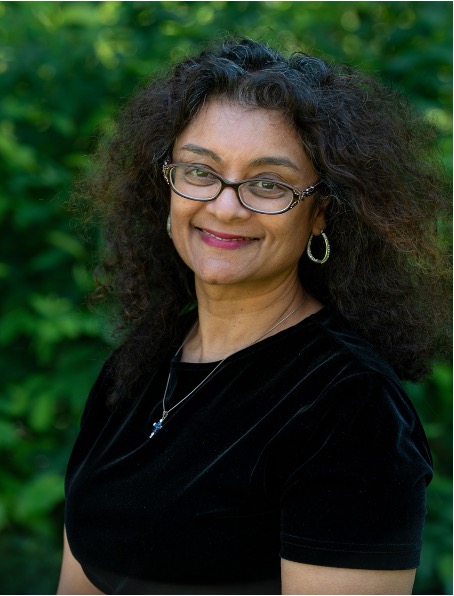
Michelle Bergen
Michelle Bergen has been a nurse for 25 years and worked primarily in oncology nursing. As of 2017, Michelle holds an MSN degree from California State University-Fresno and is a board-certified family nurse practitioner. She is currently pursuing a DNP degree at the University of San Francisco with a major in population health leadership, where her focus is on prevention and education around coccidioidomycosis, also known as Valley Fever. She hopes to implement a program in the Central Valley where primary care providers are educated on coccidioidomycosis prevention, pathophysiology, and mandatory screening and early treatment in high-risk groups.
During the Fellowship, Michelle partnered with Building Healthy Communities Fresno in an advocacy campaign around the installation of an industrial park, bike lanes, sidewalks, and a noise barrier for the affected community.
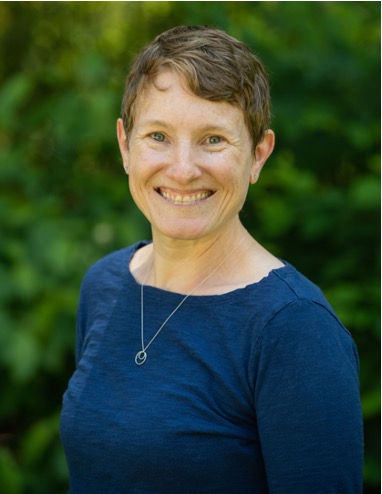
Sarah Brown Blake PhD, RN, PHN
Sarah Brown Blake, PhD, RN, PHN is an Assistant Professor in the School of Nursing at California State University, Chico. She coordinates the graduate program and teaches public health nursing. Her research focuses on equitable access to clean and affordable drinking water in California’s San Joaquin Valley.
During the Fellowship program, Dr. Brown-Blake partnered with an organization supporting a community impacted by the Camp Fire of 2018, the most deadly and destructive wildfire in California history. Residents of this community are still grappling with damaged systems and basic infrastructure (with over half of the community’s population living without electricity and running water) as well as limited access to health care. Sarah’s fellowship work focused on assessing and enhancing community residents’ access to both safe/clean drinking water and mental health resources, thus improving their resilience to future climate-related disasters. Sarah continues her involvement in this work post-fellowship.
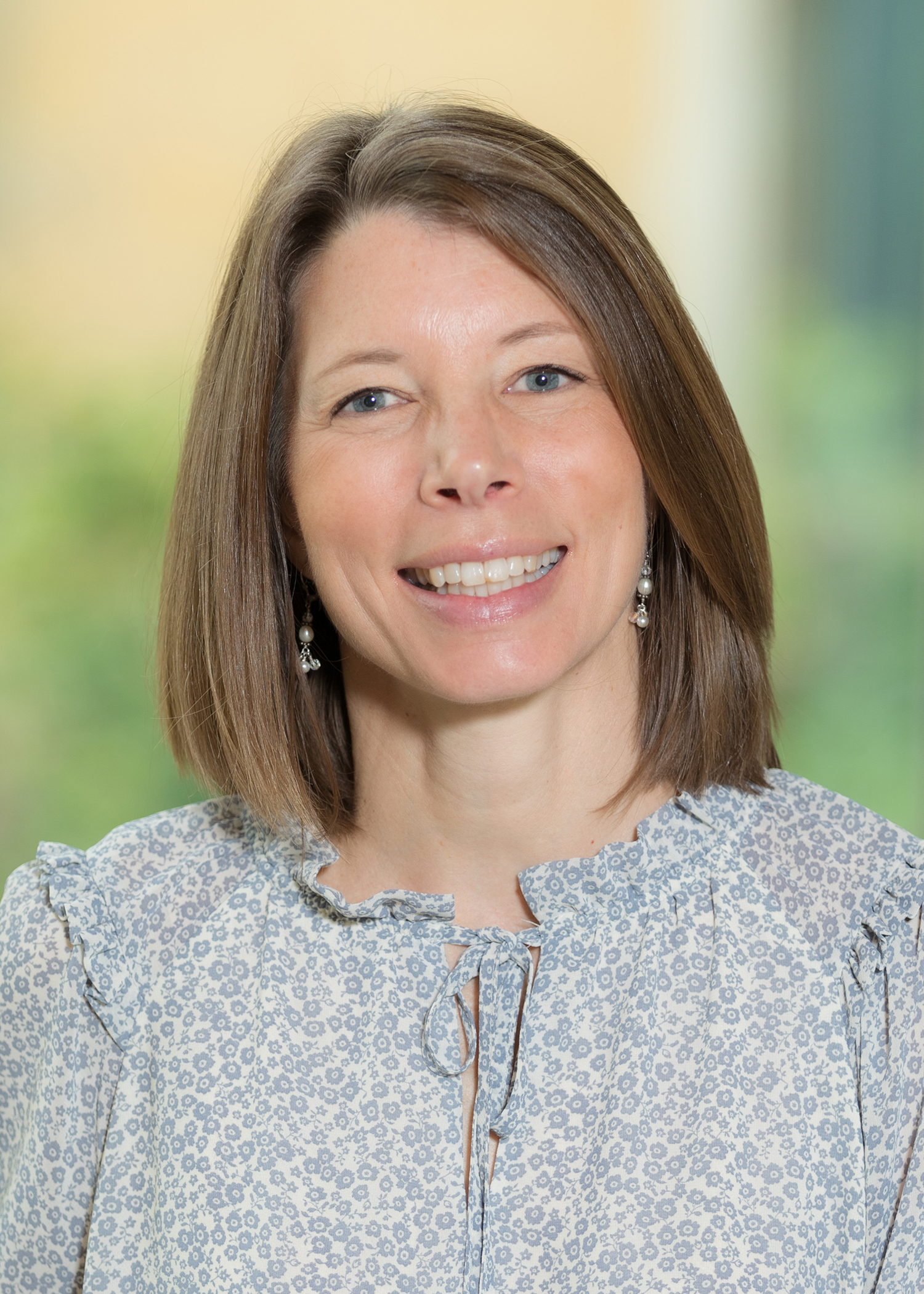
Paula Bizot MS, RN
Paula Bizot, MS, RN, is the research project manager for the Wisconsin Public Health Research Network located at the University of Wisconsin School of Nursing. She holds a master of science in environmental toxicology from the University of Wisconsin-Madison, a bachelor of nursing science from Johns Hopkins University, and a bachelor of arts in chemistry-biology from Ripon College. Paula has 20 years of experience as an environmental scientist working on complex remediation and water quality-related projects for the federal government. She is a registered nurse with experience in geriatrics and primary care.
During the Fellowship, Paula implemented the Cool Choices game at Glenn Stephens Elementary School over a two-month period with school staff. The Cool Choices game is an online game where the school formed teams and team members earned points for making sustainable choices and learning about environmental health plans in place for the school. She also worked with a team of 5th grade students to launch a lunchroom waste reduction program. Paula guided the students in the creation of an educational presentation and supervised them in going around to classrooms to teach other students about changes in lunchroom protocols to reduce waste. The students then implemented the program in the school lunchroom.

David Buchheit
David Buchheit is a nurse with special interests in environmental stewardship and public health and looks forward to working in the fellowship to develop a project to promote environmental health. David’s current nursing position is in an ICU stepdown unit where he cares for a diverse patient population. David enjoys digging in his garden, tinkering with his house, going on roadtrips, and attending plays featuring his wife/partner in life.
During the Fellowship, David partnered with the Historic Northwest-Midtown Association to conduct a photovoice project for high school students documenting local EH challenges that was integrated into Learn to Earn program run by GroundworkNRG. He also served as a guest speaker on nursing and EH and sought other speakers for the group.

Stephanie Burkholder
Stephanie Burkholder was born and raised in Helena, Montana. Currently, she is an Assistant Professor of Nursing at Carroll College in Helena and teaches several nursing courses to undergraduates. Her educational background includes a Bachelor of Science in Nursing from the University of Pennsylvania and Master of Nursing (family nurse practitioner program) from Montana State University. Prior to her current role in academia, her nursing career included pediatric inpatient care, public health nursing, and nurse case management. When she is not teaching, Stephanie enjoys hiking, backpacking, and exploring with her husband and two children.
During the Fellowship, Stephanie partnered with Lewis and Clark County Environmental Quality Work Group to initiate a clean air room campaign in local schools. She also worked on completing a literature and fact sheet to be utilized for seeking future funding and for implementation of the campaign.

Tammy Davis BS, RN
Tammy Davis, BS, RN currently lives in Birmingham, Alabama and has been a Registered Nurse for 12 years. She specializes in clinical research- electrophysiology, cardiovascular surgery and stroke. Tammy is currently the Regional Coordinating Center Manager for StrokeNet at the University of Alabama at Birmingham. Tammy has a passion for community service. She is a Girl Scout Lifetime Member, a member of the Birmingham Black Nurses Association (BBNA) and a Health Coordinator for her Faith Family. In BBNA she has served as the Continuing Education Coordinator and on the Heart Health Initiative with the American Heart Association. Tammy has also planned and organized two HIV education programs: one for college students and the other for Clergy. As several areas in Alabama are in environmental crisis, she is excited for the training the fellowship will provide so she can serve her community better.
During the Fellowship, Tammy partnered with Black Belt Citizens Fighting for Health and Justice to plan and implement a free health clinic and climate change education session. Tammy partnered with ANHE, UAB, and Selma Family Clinic to provide a health screening day, resulting in UAB Selma agreeing to provide a free clinic with screenings and medication assistance per quarter.
Plan and implement a free health clinic and climate change education session. Partnered with ANHE, UAB, and Selma Family Clinic to provide a health screening day. As a result, UAB Selma will provide a free clinic with exams and medication assistance per quarter.
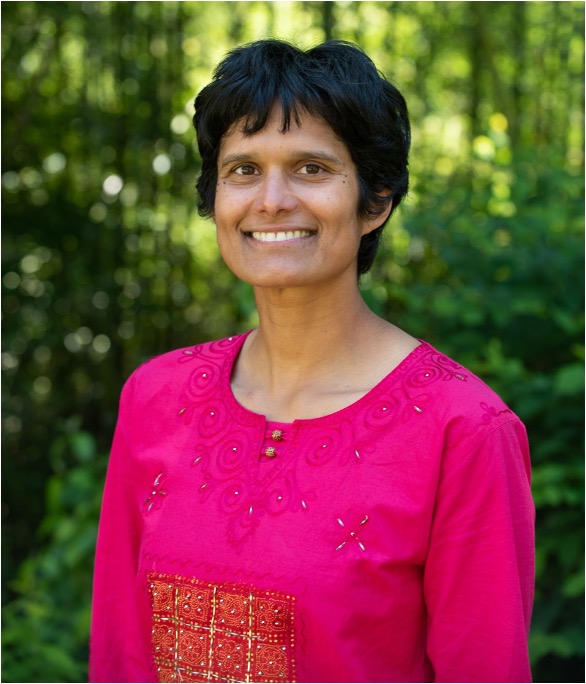
Rachael De Souza
Rachael De Souza works as a bedside nurse at a large hospital in Tacoma, WA. In her free time, she focuses on local climate justice and labor advocacy. Rachael is very interested in engaging underrepresented groups (such as low-wage workers, laborers in construction trades, and black and brown folks) in environmental advocacy. Through the ANHE fellowship program, Rachael hopes to find support in climate justice work and to learn about how to motivate other nurses to become climate justice leaders, including seeking elected offices.
During the Fellowship, Rachael De Souza is a hospital and community health nurse in Tacoma, Washington. Rachael partnered with a local steelworkers’ union and the Blue-Green Alliance to inform and enhance opportunities for the public and the workers to give input into state rulemaking governing refinery processes in Tacoma, Washington. The goal was to improve refinery safety for workers, reduce the refinery’s health impacts on the surrounding community, and help address climate change. This advocacy work shifted due to the pandemic, and Rachael remains involved.
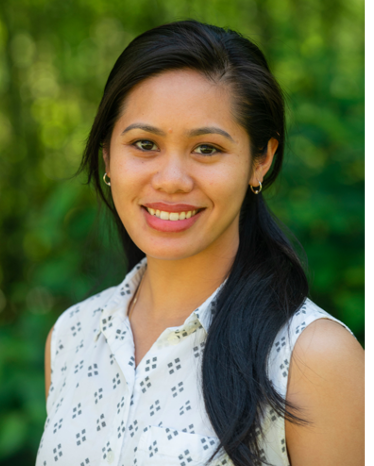
Ruth Esa BSN, RN, CCRN
Ruth Esa, BSN, RN, CCRN is a certified critical care nurse and has worked in the Surgical ICU for 8 years at LIJ-Northwell Health. In addition to critical care, she will start a new role as a home hospice nurse for Long Island Hospice Care Network. Ruth completed the Integrative Healing Arts Program for Holistic Nursing given by the American Holistic Nurses Association. Through the program she has worked with nurse managers to promote self-care amongst staff. Ruth was featured in Northwell’s publication “Nurses of Northwell Health: A Sense of Purpose” where she wrote about Reiki and benefits to patients. She has volunteered to recover children after cleft lip and palate surgeries with Medical Missions for Children in Quito, Ecuador.
During the Fellowship, Ruth explored CBO’s throughout Queens, New York, building connections throughout the borough. Ruth supported the Green Team at a high school focused on preparing students for careers in the health professions in Cambria Heights, Queens. The Green Team’s goal was to promote food justice and autonomy in promoting food choices and practices that improve health while mitigating climate change. She helped them apply for a citizen’s grant that would support the school in providing fresh, school-grown produce to the community, composting food scraps, and installing native permaculture gardens to enhance green space on school grounds. This grant is now being utilized in COVID-19 relief efforts for those disproportionately impacted by the pandemic and economic crisis. She has become a “Compost Master” and has advocated to promote composting amongst the students, work colleagues and voiced her testimony to the NYC Council Committee on Sanitation & Solid Waste Management to #SaveOurCompost.
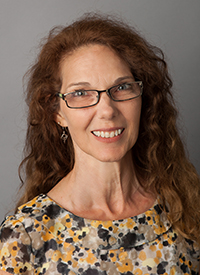
Christine Fasching Maphis MSN, RN-BC, FNP-BC
Christine Fasching Maphis, MSN, RN-BC, FNP-BC is a Psychiatric Mental Health Nurse, Family Nurse Practitioner and teaches psychiatric and mental health nursing and impact of chronic illness at the James Madison University School of Nursing. Christine is passionate about our planet and natural resources, as well as the huge impact that nurses can have in influencing population health through initiatives that mitigate and bring awareness to climate change.Through the ANHE fellowship program, Christine hopes to learn more about empowering nurses to engage personally and professionally in their communities to initiate and support sustainable solutions.
During the Fellowship , Christine assisted efforts to form the 50by25 campaign in Harrisburg, Virginia. The campaign advocated for the city council to commit to 50% renewable energy in the electric grid by 2025. The campaign also called for a 25% increase in energy efficiency in municipal and school buildings by 2020, along with the promotion of equitable pricing and creation of programs that incentivize weatherization and energy efficiency in residential and commercial properties, lowering energy costs and making housing more affordable. Chris worked with the campaign to submit a $500,000 grant to enhance equitable interventions around the health impacts of climate change. In response to campaign advocacy efforts; the Harrisonburg city council unanimously passed a resolution committing to 100% clean and renewable electricity by 2035, and across all energy sectors by 2050. This makes her community one of 10 cities in Virginia and one of 166 U.S. cities to adopt 100% clean energy commitments. Her efforts to engage other health professionals around this important work has included providing education and advocacy for sustainable and equitable energy transitions to local health and social service providers and her undergraduate nursing students, helping to organize a continuing education conference with the University of Virginia, and submitting a resolution on climate change for the American Nurses Association (ANA).

Felix J. Roman Hernandez DNP-PHNLs, MSN, RN
Felix J. Roman Hernandez, DNP-PHNLs, MSN, RN is a faculty member at the University of Puerto Rico, Medical Sciences Campus School of Nursing, where he teaches Health Physical Assessment, Adult Health and Community Health Nursing. During his past professional experience he has worked for hospital institutions and government programs such as the WIC federal program as a community nurse offering nutrition education, home safety environment, health education, case manager and clinical service to mothers, infants, and children. Felix is a DNP – Public Health Nurse Leader student at the University of Massachusetts at Amherst. In his program, he has worked on community projects focused on the prevention of vector-borne diseases in partnership with government agencies and faith-based groups and utilization of photo-voice to educate community members on waste management in the rural area of Trujillo Alto, Puerto Rico.
During the Fellowship, Felix partnered with a coalition of 8 communities surrounding the Caño Martin Peña channel, an area that has experienced significant challenges as a result of climate change, including residual damage from Hurricane Maria. Felix provided education on air quality, asthma, and the connection to climate change for school aged children. His continued work beyond the Fellowship involves working with a local school to implement the EPA Air Quality Flag program with the aim of reducing asthma exacerbations and school absenteeism. Felix is working with various stakeholders, such as the University of Puerto Rico and government agencies to further build resilience.
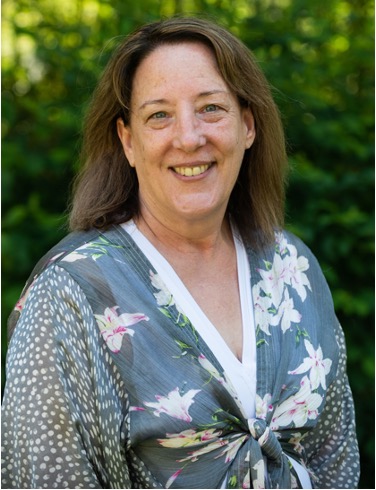
Jo Ann Kim
Jo Ann G. Kim (also known as “Jo”) grew up in rural Northeast Nebraska and currently resides in South Dakota. She has worked as an acute care and outpatient RN in various subspecialties, as well as in home-care nursing, occupational health nursing, community health nursing, and as a nurse educator. Jo is currently pursuing MSN degree in the family nurse practitioner track at Mount Marty College. She has become involved with ANHE in the interest of helping to improve the health of her community, which is impacted by environmental challenges including heavy pesticide usage on farms as well as weather extremes in a changing climate.
During the Fellowship, Jo partnered with Greening Vermillion to develop a pamphlet, online links, door hangers, and presentations to instruct residents on recent changes to recycling regulations.
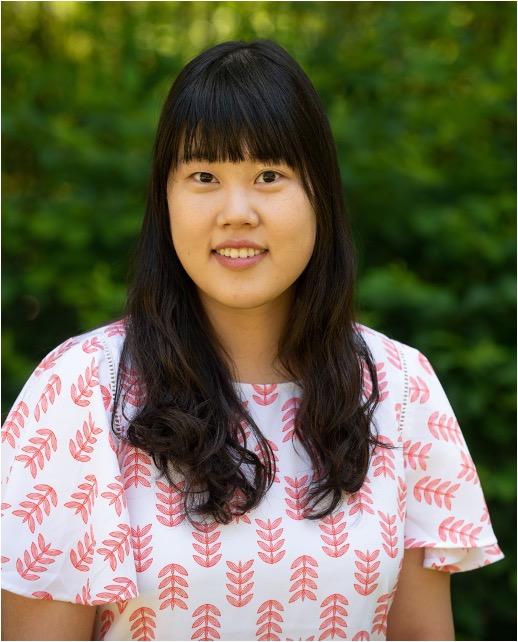
Soohyun Kim
Soohyun Kim is a public health nurse with State of Alaska, and is currently a regional nurse manager for Southeast Alaska. She holds MSN and MPH degrees from Johns Hopkins University, and she has served in a number of past roles related to public and community health, refugee health, and data analysis. Ms. Kim is deeply interested in advocating for environmental health issues at a local level and in translating environmental health research into actionable, culturally relevant information.
During the Fellowship, Soohyun assisted with various community outreach projects of the Community Engagement, Environmental Justice, and Health (CEEJH) Lab at the University of Maryland-College Park. She helped develop educational materials and plan for community workshops on different environmental justice issues, including park access equity and air quality.

Jason Kirchick MPH, RN
Jason Kirchick, MPH, RN is a researcher and graduate student at Sacred Heart University. His current areas of interest include utilizing the public health framework to address health issues in communities, exploring influenza vaccination attitudes in the United States, and the impacts of climate change on health. Jason came to the nursing profession following a near-death experience with H1N1 Influenza and spent several weeks in the Intensive-Care Unit fighting sepsis, acute respiratory distress, and multi-organ failure. Through his experience as a patient, he became a Patient-Family Advisor for the University of Vermont Medical Center and Patient Ambassador and Peer-Reviewer for the Patient-Centered Outcomes Research Institute (PCORI). Jason is a critical care nurse and County Coordinator for the Medical Reserve Corp. Jason is part of the 2019 Student Think Tank for the American Journal of Public Health, is an active member of the American Public Health Association Public Health Nursing Section and serves on the Board of Advisors for the College of Nursing and Health Sciences at the University of Vermont.
During the Fellowship, Jason collaborated with the Stowe Land Trust and the local hospital on a project to promote access to the outdoors to increase good health and well-being through implementing ‘green prescription’ (GRx). The project aimed at providing education to healthcare providers’ (HCPs) in the county on the work of Stowe Land Trust and performing research to gather perceptions of implementing green prescriptions in practice to improve health outcomes of the population. Unfortunately, the project was placed on hold due to the pandemic.
During the Fellowship, Ruth explored CBO’s throughout Queens, New York, building connections throughout the borough. Ruth supported the Green Team at a high school focused on preparing students for careers in the health professions in Cambria Heights, Queens. The Green Team’s goal was to promote food justice and autonomy in promoting food choices and practices that improve health while mitigating climate change. She helped them apply for a citizen’s grant that would support the school in providing fresh, school-grown produce to the community, composting food scraps, and installing native permaculture gardens to enhance green space on school grounds. This grant is now being utilized in COVID-19 relief efforts for those disproportionately impacted by the pandemic and economic crisis. She has become a “Compost Master” and has advocated to promote composting amongst the students, work colleagues and voiced her testimony to the NYC Council Committee on Sanitation & Solid Waste Management to #SaveOurCompost.

Kelly McCarthy MS Nursing Education
Kelly McCarthy holds a Master’s of Science in Nursing Education and is pursuing a post-graduate certificate in Healthcare Simulation. She has been a nurse since 2005, and she has experience in acute care and nursing education from a staff development perspective. She currently works as the supervisor of a new hospital-based Simulation Center and manages the online learning system. She lives on a farmstead, where she grows food and cares for a variety of animals; she is also a beekeeper and has a passion for self-sustainable living.
During the Fellowship, Kelly partnered with the Kootenai Environmental Alliance to provide education to the community on the impact of heavy metals on human health and developed a fact sheet for community distribution.
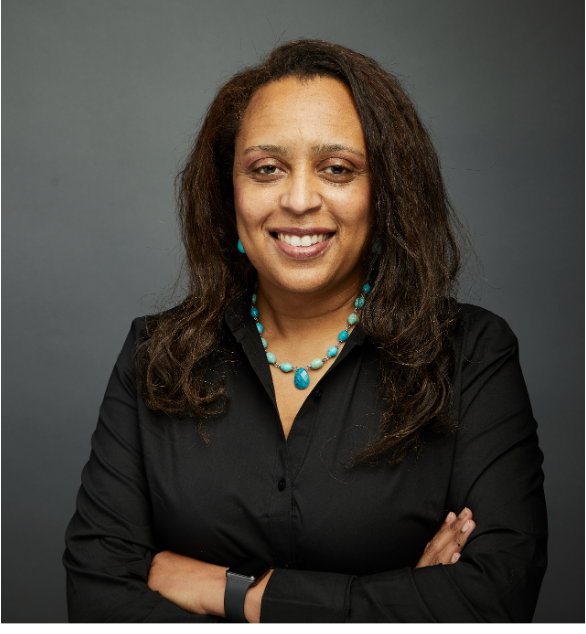
Mikki Meadows-Oliver PhD, MPH, PNP-BC, RN
Mikki Meadows-Oliver, PhD, MPH, PNP-BC, RN has been a nurse since 1993 and a pediatric nurse practitioner (PNP) since 1998 when she earned her joint MSN/MPH from Yale University. She worked as a PNP in an outpatient clinic serving underserved, immigrant and refugee families and discovered her love of educating future generations of nurses as a faculty member at the Yale University School of Nursing. In 2001, Mikki narrowed her clinical focus and began working in a pediatric environmental health program—focusing on caring for children with asthma and lead poisoning. She earned her PhD in nursing in 2006 from the University of Connecticut. In 2016, she began working clinically in a school-based health center while continuing her faculty roles at the University of Connecticut, Quinnipiac University School of Nursing and currently at New York University. Dr. Meadows-Oliver has presented nationally and has written peer-reviewed publications related to environmental issues that affect human health.
During the Fellowship, Dr. Meadows-Oliver partnered with Project Access New Haven. Dr. Meadows-Oliverworked with a new mom’s group to talk about the benefits of breastfeeding and environmental impacts of using infant formula. She developed a brochure and educated community members on hazards of lead poisoning. The educational components she developed with her CBO can be provided to future cohorts.

Linda Mendonca MSN, NCSN, PHNA-BC, FNASN
Linda Mendonca, MSN, NCSN, PHNA-BC, FNASN has been a registered nurse for 38 years practicing school nursing for 23 years overseas and in five states as a military spouse. With the practice of school nursing in the arena of community health; Linda has had the opportunity to network and collaborate with many community partners here in Rhode Island. She has served on school nursing organization boards on the state and national level. She currently teaches community/public health nursing at RI College School of Nursing and consults part-time as a state school nurse consultant at the RI Department of Health. Linda is very passionate about environmental health and currently serves on the RI leadership and Northeast boards for the American Lung Association and the RI Asthma coalition. Other work includes her role as VP serving on the Healthy Schools Network board; a national organization advocating for a healthy school environment and is a member of the ANA-RI environmental health subcommittee. She resides in Providence and enjoys spending time at the beach.
During the Fellowship, Linda partnered with the Childhood Lead Action Project to reduce childhood lead exposure from lack of code enforcement in the city and to promote lead safety in homes. Linda worked with city hall to ensure that compliance of lead safety certificates in homes (especially landlords) are being monitored and educated the residents of Central Falls regarding their rights as tenants and to understand the impact of lead poisoning. Her project involved many meetings with city officials discussing the health impacts of lead to key stakeholders and working with the school department to outreach to parents, teachers, and school nurses.
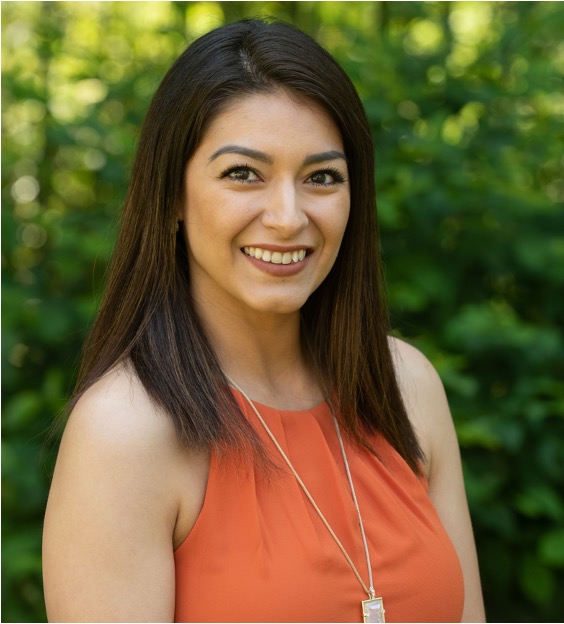
Atenas Mena
Atenas Mena from Kansas City is a first generation Mexican American. Ms. Mena received her Master’s in Nursing Leadership from MWSU in 2019. As a nurse, Ms. Mena received extensive environmental health training and participated in a cohort of the Alliance of Nurses for Healthy Environments to support regional environmental justice work. For years, Ms. Mena worked with CleanAirNow through community-based projects, served as an advocate and transitioned into the leadership role as Co-Executive Director. She fights for health equity alongside the community she grew up with.
During the Fellowship, Atenas partnered with the CleanAirNow, the Healthy Environments Coalition Wyandotte County, and the Climate Action Youth Advisory committee to co-chair the HEC and work on recruiting community members to meetings. She additionally worked with the youth advisory board to empower youth to be on the front lines of addressing climate change, supporting them around projects, educational events, etc.

Nancy Moran RN, MS
Nancy Moran RN, MS, has worked in public health nursing in Tulsa, Oklahoma for over 22 years. She is an integrative nurse coach, yoga instructor, and collage artist, with a masters degree in integrative health and wellness and a focus on mind-body medicine. Nancy has served as a community volunteer is various capacities including founding the first transition living center for homeless people with chronic mental illness, leading the Tulsa Peace Fellowship, and most recently as the co-coordinator of Tulsa Ready for 100, which seeks to secure a just and equitable resolution from the Tulsa City Council to transition to 100% renewable energy. Nancy is now focusing her energy on community organizing and engagement.
During the Fellowship, Nancy monitored air pollution/air quality, surveyed her community on health impacts related to air pollution, and shared the community’s air quality concerns with city and state officials. She also worked with Tulsa city officials and community organizations to update Tulsa’s energy efficiency scorecard to help reduce its contribution to climate change.
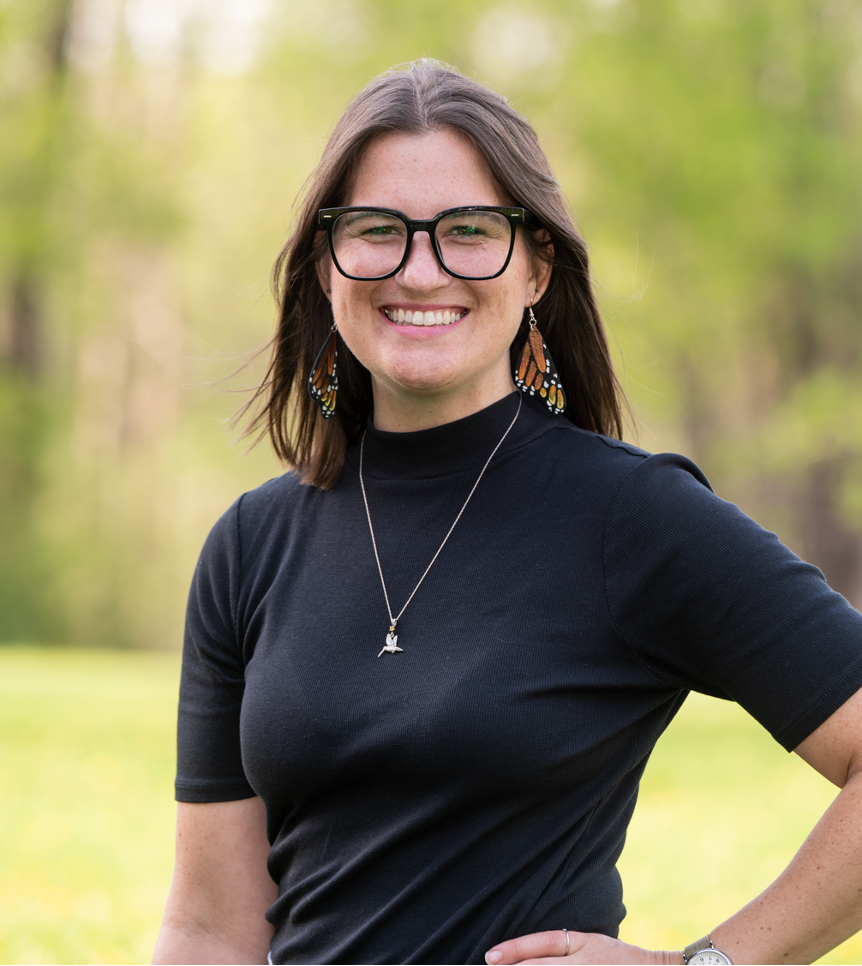
Hannah Noel-Bouchard BSN, RN
Hannah Noel-Bouchard, BSN, RN is a public health nurse in Charleston, South Carolina (SC), a DNP student at the University of Minnesota, and the Nurse Operations Coordinator for the Alliance of Nurses for Healthy Environments (ANHE). She is currently working with a local nonprofit organization, Neighbors Together, to reimagine their health and wellness program to better serve the low-income and homeless populations of North Charleston, SC. She is also working with the Charleston County Public Library system (CCPL) as both a Library Nurse and a consultant in their efforts to connect vulnerable populations in the Charleston area to healthcare in the library setting. Prior to this work, Hannah has worked in cardiac/telemetry, research, and school nursing and was an Emergency Medical Technician. Hannah participated in ANHE’s inaugural Environmental Health Nurse Fellowship program and she continues to build relationships and work with local communities to better understand, prepare for, and mitigate the negative health effects of climate change and polluted air, soil, and water. Her interests include improving health literacy in underserved populations, healthcare design by positive deviance strategies, the changing climate and human health, and community-based healthcare.
During the Fellowship, Hannah developed and led an ecoClub after school program for elementary students in North Charleston, South Carolina with the assistance of her community-based organization partner, the Charleston Promise Neighborhood, focused on the effects of air quality on asthma and environmental justice. The ecoClub engaged students on activities to increase understanding of environmental health, cultivate community engagement, and allow students to showcase their work in an Earth Day celebration. Unfortunately, the ecoClub was put on hold due to the pandemic, however Hannah has continued discussions with the Charleston Promise Neighborhood into how the program could be continued after the pandemic, how we may be able to implement environmental justice solutions into summer programs, and what an ‘Environmental Club’ program might look like in coming years.
Hannah also helped to bridge connections between her partner community-based organization and various community organizations, promoting collaboration on important efforts such as air monitoring and revitalization of green spaces in the North Charleston area. In one collaborative project, Hannah worked with a local organization to utilize grant funding to purchase air quality monitoring for areas affected by poor air quality.
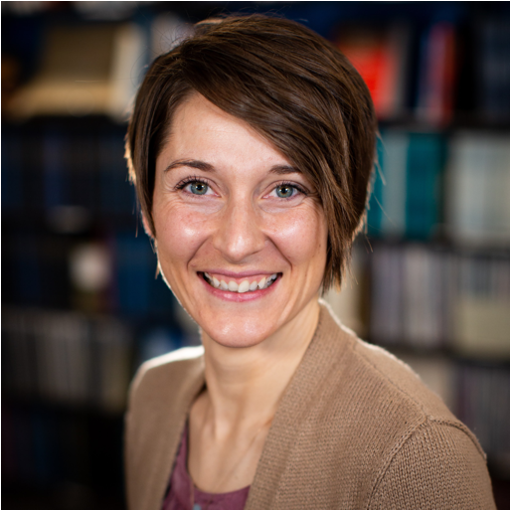
Kiley Petersmith
Dr. Kiley Petersmith is the Director of Diversity & Community Engagement from Nebraska Methodist College. Kiley is adept at relationship building and directing the strategic vision of the Center coordinating meaningful and mutually beneficial community engagement experiences to address diverse college and community needs, creating positive social change towards equitable health and cultivating active citizen leaders in future healthcare professionals. She leads efforts to develop new health-centered programs, partnerships, and educational opportunities to enhance the offerings within the Center addressing health equity and community engagement. In this role, Kiley oversees mobile health programs bringing free healthcare to people in the community where they live, work, play, pray, and learn. One program involves providing secondary and primary prevention strategies addressing the lead pollution problem in the nation’s largest residential lead superfund site. Additionally, her leadership directs the strategic vision of diversity, equity, and inclusion at the institution.
Kiley is a 3-time alumni of Nebraska Methodist College receiving her Bachelor’s of Science in Nursing, Masters in the Science of Nursing Education, and Doctorate of Nursing Practice in Public Health Policy. Kiley began her nursing career in pediatrics serving as a nurse in Critical Care and Emergency Medicine for 7 years before transitioning to academia at her alma mater Nebraska Methodist College. Now, she advances the mission of the college and the Center for Diversity & Community Engagement through relationships with signature partners, community organizations, area businesses, and government agencies.
Kiley also serves on many boards/coalitions in the community, including Nebraska State Lead Advisory Group, Board Member of Healthy Housing Omaha, as well as served on various public school health advisory boards in the Omaha Metro and Nebraska Methodist College’s Sustainability and Social Justice and Inclusion committee. She was the co-lead for Nebraska’s Nursing Action Coalition and completed a fellowship program with the Alliance of Nurses for Healthy Environments, engaging in policy and leadership initiatives that work to improve social and environmental conditions impacting health. She engages in educational seminars throughout the state exploring implicit bias existence within the healthcare setting, social determinants of health and the complex inter-connectedness of our community’s social needs related to health, inclusive community engagement practices to address health inequities of the local community, and environmental injustice and health disparities related to the built environment.
During the Fellowship, Kiley designed and implemented a risk assessment tool for common health concerns related to poor housing/living conditions, including lead poisoning, which will be implemented in local schools in Omaha, Nebraska. This risk assessment tool will flag those that are “at risk” and refer them to the Omaha Healthy Kids Alliance which provides resources to assess, diagnose, and mitigate harmful environmental issues in the home.

Kathy Reiner
Kathy Reiner is currently a School Nurse Specialist with the Colorado Department of Education. Previously, she worked as a public health professional in environmental and communicable disease epidemiology. Ms. Reiner is on the Board of Directors of the National Association of School Nurses, where she leads the Healthy Communities Strategic Committee, working to achieve the organization’s vision that all students will be healthy, safe and ready to learn. Ms. Riener believes that working for climate justice can help to realize this vision.
During the Fellowship, Kathy removed real and perceived barriers to access to these resources in Lone Tree, Colorado with the goal of increasing birdwatching participation and high quality time in nature amongst people with mobility impairments. She helped in assessing challenges faced by people with mobility impairments on the trails, and then she facilitated interventions which addressed these challenges. Ultimately, people with disabilities in her community have improved access to birdwatching and time in nature as a result of her work.
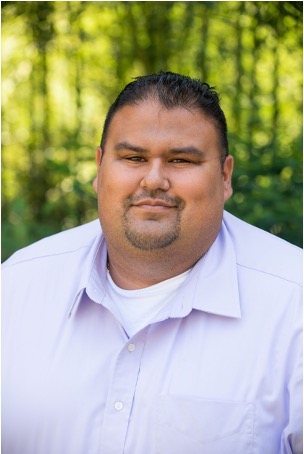
Aaron Salinas DNP, APRN,FNP-BC,PMHNP-BC, NRP
Aaron Salinas, DNP, APRN,FNP-BC,PMHNP-BC, NRP is an Assistant Professor and the BSN Program Coordinator at the University of Texas Rio Grande Valley in Edinburg Texas. He has been in Academia for 7 years. In addition to his role with the School of Nursing . Dr. Salinas is a Nurse Practitioner with Board Certifications as a Family Nurse Practitioner and a Psychiatric Mental Health Nurse Practitioner. He is part of the UT Health Rio Grande Valley Team and sees patients at the University Health Center and does consultation work with a local psychiatrist and a pediatrician in the Rio Grande Valley. He is involved in many organizations at the local, state and national level where he serves on many of the organizations as a board member.
During the Fellowship, Dr. Salinas hosted educational sessions for the community via the local Kiwanis club in Edinburg, Texas about particular environmental health issues affecting the area. These topics included flooding, pollution, air/water quality, safe food accessibility, safe home environments, and lead contamination.
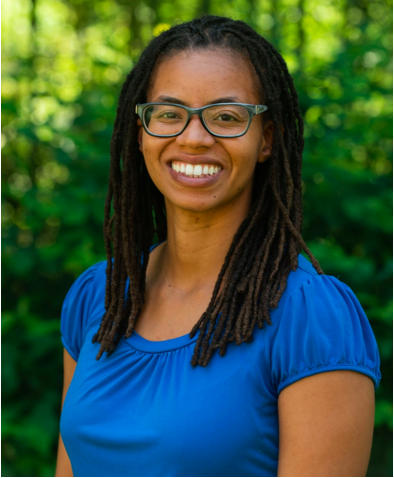
LaTiana Ridgell MPH, BSN, RN
LaTiana Ridgell, MPH, BSN, RN is a Public Health Nurse Home Visitor for Nurse Family Partnership. She works with clients who are low-income first-time mothers, enrolled in the program during their pregnancy conducting home visits and providing health, wellness, and social services until their child turns two. During this time, she screens children for developmental delays and provides parents with information to support their child meeting these developmental milestones. LaTiana serves on the policy committee at Nurse Family Partnership which examines system-wide issues that clients encounter. Most recently, she testified on behalf of children exposed to lead-based paint and contaminated dust to the Philadelphia City Council. LaTiana believes nurses have incredible insight into what happens on the ground whether that is in the homes, in the hospital or in community centers, which is why she encourages nurses to leverage their knowledge to impact policy legislation.
During the Fellowship, LaTiana participated in a campaign with the Public Citizens for Children and Youth/Lead-Free Coalition to advocate on behalf of the children in the city and encourage city council to pass the universal lead bill into law. She provided testimony to the city council, met with council members, outreach events and created a sharable timeline for folks curious about the universal lead law. This resulted in the successful passage of legislation to remove lead paint in Philadelphia homes by disclosing contact information on licenses to improve transparency and to provide monetary support for homeowners needing to test or abate their own homes.

Rachel Schrank BSN, RN
Rachel Schrank, BSN, RN has been a nurse for over 16 years, working primarily in adult intensive care. Rachel enjoys the ICU setting because of constant learning, teamwork and the satisfaction of making a difference. After becoming a mother and moving into a more diverse community, Rachel became more aware of environmental health issues. Rachel continues to stay involved with her neighborhood and community in a volunteer capacity.
During the Fellowship, Rachel partnered with Near Northwest Neighborhood, Inc to increase lead testing rates of children by home tests and events. She created a resource list for the neighborhood and an algorithm to get all the organizations working on lead poisoning in the community on the same page to improve efficiency and in-home lead testing of children.
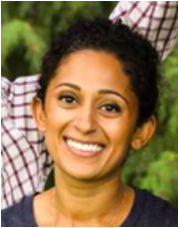
Meera Sotor MPH, RN
Meera Sotor, MPH, RN is a recent graduate of the University of Illinois at Chicago’s School of Public Health, where she received an MPH with a concentration in Community Health Sciences. Meera has been a nurse for over 8 years, working primarily in adult medical/surgical nursing. Four of those eight years were spent working as a travel nurse in Arizona, Colorado, Washington and Oregon. Meera currently works for Advocate Health Care with a small team called the Transition Program in which she provides wellness visits to recently discharged patients in an effort to reduce readmission rates.
During the Fellowship, Meera partnered with the Little Village Environmental Justice Organization (LVEJO) utilizing her voice to support the fight for a healthier community in Little Village, Chicago, Illinois and beyond. Meera testified and submitted a public comment in support of a strong permitting and regulatory process that holds corporations and polluters in the community accountable. Along with her vocal activism she created a painting to showcase the Little Village’s fight for clean air and assisted with a press conference highlighting the Little Village community’s continued efforts to reduce the burden of pollution, to improve health outcomes, and for a just transition to clean and renewable development in the area.
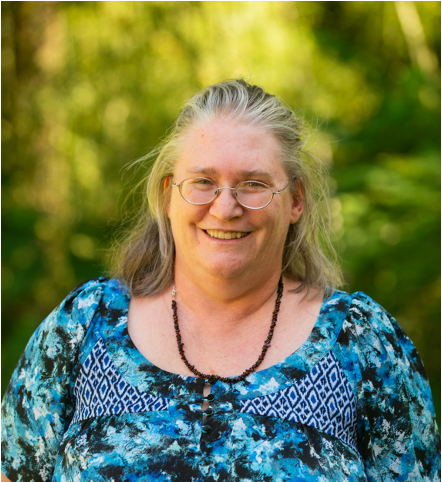
Sheila Stone MSN, RN, CNE
Sheila Stone, MSN, RN, CNE has been an environmental justice activist for over 40 years. She obtained her BSN at Humboldt State University in Arcata, California in 1985 and an online MSN (with an education focus) from Chamberlain University in 2018. Sheila is a certified trainer of Unlicensed Assistive Personnel, and has taught Home Health, CNA, and Medication Aide trainings for a variety of agencies, including Workforce Services at her local Community College. She currently serves on a state committee to rewrite the medication aid curriculum for behavioral health – licensed community agencies. Sheila initiated a task force in Nelson County to work on home care in her rural mountain area, and also convened a health professional task force to work against the Atlantic Coast Pipeline. Almost all of her career has been in community, public, and home health. Sheila has played and studied Appalachian music and dance for 40 years.
During the Fellowship, Sheila partnered with CIRAC-Charlottesville to develop informational brochures, presentations and a fact sheet on climate change/human migration/nursing.
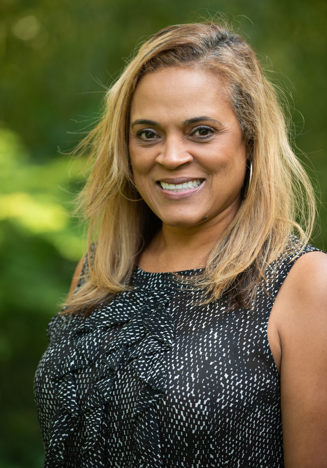
Dr. Antionella Upshaw
Dr. Antionella Upshaw has been a nurse for over 22 years with a clinical background in medical surgical, oncology, hospice and palliative care, case management and public health. She has taught undergraduate and graduate nursing students about public health, community populations at risk, and health disparities. She has volunteered with local organizations, churches, schools, and governmental agencies to identify and implement new initiatives for the medically underserved and communities of color. In her collaborative interdisciplinary efforts with local and national organizations, she encourages policies that advance environmental justice and protect communities of color, students, nurses, children, and older adults. Her business background in economics and finance has allowed her the opportunity to gain experience in resource allocation and non-profit fundraising.
Dr. Upshaw’s current research focuses on aging and the impact of climate change, particularly, disaster preparedness for at-risk older adults. As an inaugural fellow with the Alliance of Nurses for Healthy Environments (ANHE) she has served as co-chair of the Diversity, Equity & Inclusion (DEI) committee. Additionally, Dr. Upshaw has shared her knowledge of climate change and health effects by enhancing resilience through educational sessions, expanding curriculum content and course development, workshop toolkits, and networking/mentorship. As a statewide RN program consultant for Louisiana, Dr. Upshaw continues to use her knowledge to provide professional nursing consultation and expertise in policy formation, guidelines, and protocols regarding emergency preparedness plans. Dr. Upshaw is a past recipient of the National League for Nursing (NLN) Jonas Scholar and the Louisiana Board of Regents Nursing Fellowship. She has also held active membership and led state and national organizations.
During the Fellowship, Dr. Upshaw partnered with Together Baton Rouge to hold educational sessions for older adults and their families around disaster preparedness and response. She developed guidance documents detailing disaster preparedness plans plus a toolkit to administer community educational sessions for older adults and their caregivers around disaster preparedness.

Lisa Whitfield-Harris PhD, MBA, RN
Lisa Whitfield-Harris, PhD, MBA, RN has over 20 years of experience in the nursing profession in both clinical and administrative roles. Currently, she is the Director of the Community Systems Administration program and an Assistant Professor at Thomas Jefferson University College of Nursing. Her nursing background has spanned several disciplines including education, public health, neurosurgical intensive care unit, and operations management. She has held various positions including academic nursing advisor, diversity coordinator, public health nurse, operations manager, and staff nurse. Dr. Whitfield-Harris completed her BSN at West Chester University, MSN and MBA at La Salle University, and PhD at Duquesne University. She also has certifications in Mindfulness, Nursing Education, and Mental Health First Aid. During her career, she has been a scholar for Sigma Theta Tau honor society, the Association of Black Nursing Faculty, National League for Nursing, and National Coalition of Ethnic Minority Nurse Association. Her interests include issues on diversity and inclusion, health equity, social justice, and healthcare quality and access for underserved populations. She completed publications on African-American nurse faculty experiences in predominantly White schools of nursing, nursing ethics, and patient-provider concordance. Dr. Whitfield-Harris enjoys mentoring students as well as working with diverse populations.
During the Fellowship, Dr. Whitfield-Harris partnered with the Camden Collaborative Initiative. The goal of the project was to assess the air quality of Camden, NJ, in which it was identified that bus/truck idling, the waste emissions of the area factories, as well as housing quality were major environmental concerns in the community. Through her partnership, they partnered with area businesses, residents, and industry on these concerns and provided community education on air quality monitoring, monitoring truck idling in the area, and using the hotline for concerns/emergencies.
Cohort 1 Mentors
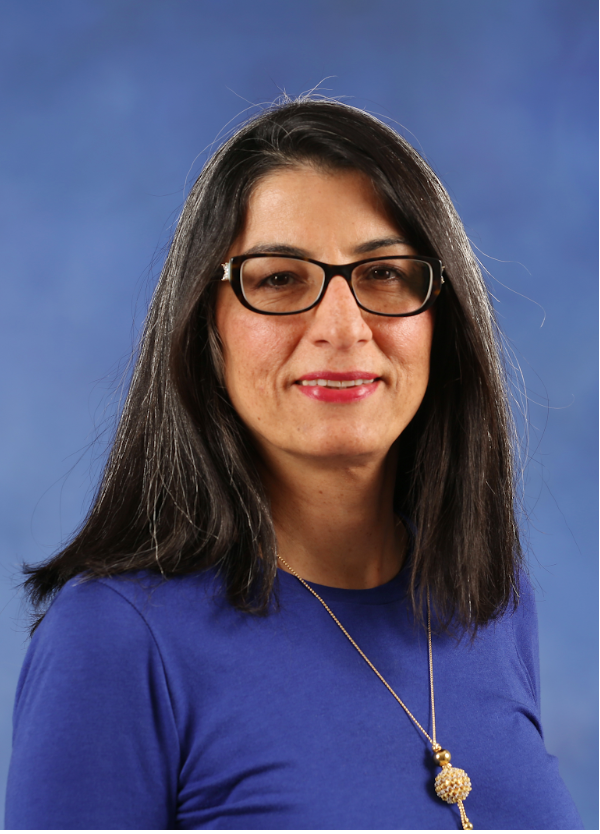
Azita Amiri PhD, RN
Azita Amiri, PhD, RN is an Assistant Professor at the University of Alabama in Huntsville, College of Nursing. Dr. Amiri is a nurse researcher with an interest in indoor air, environmental health, and environmental justice. She measures indoor air quality by simulating residential and occupational settings in her lab and studies the common indoor air exposures, their concentrations and sources, and their impact on pregnancy outcomes, child health, and well-being of elderly.
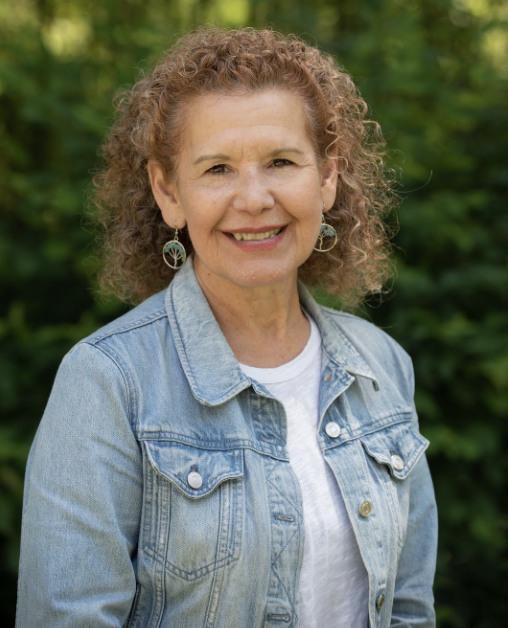
Adelita Cantu
Adelita Cantu is an Associate Professor at UT Health San Antonio School of Nursing. She has worked in public health for over 35 years and focuses on strategies to reduce health disparities among vulnerable populations. She has also been involved with ANHE for over 10 years and has used what she has learned from and with the organization to empower vulnerable communities around the connection between health and the environment and how they can mitigate their exposure to multiple environmental health threats.
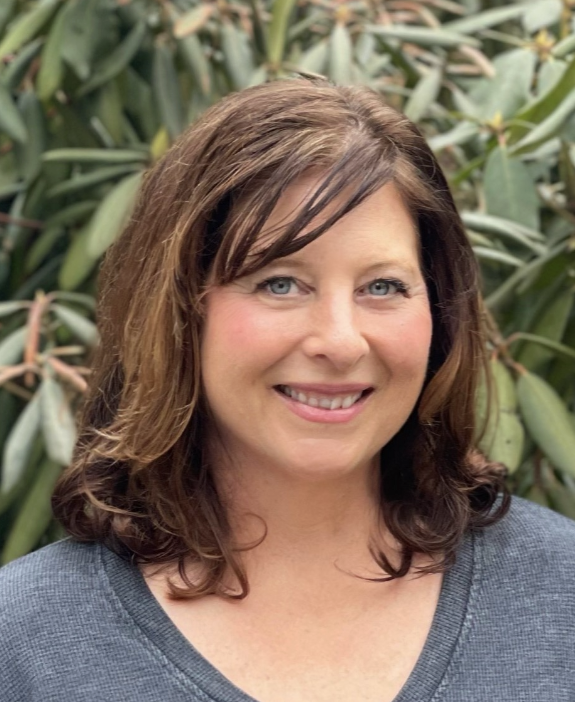
Lisa Chan MSN, RNC-OB
Lisa Chan MSN, RNC-OB is a Nurse, Perinatal Educator, Wellness Specialist, certified Aromatherapist, certified Dancing for BirthTM Instructor, and the owner of HeroSelfCareTM LLC. She is passionate about women’s health, nurse wellness, and environmental health. Since 2014, she has supported thousands of new moms, students, and caregivers on their journey to health and wellness. In 2010, Lisa became increasingly concerned about the number of harmful chemicals contained in everyday consumer and personal care products and the adverse effects they might be having on her patients and people in her community. She began her mission to tell everyone she knew what her research uncovered. She developed a special knack for teaching people how to make small changes and shifts towards a healthier, less toxic lifestyle. During 2019-2020, she served as an ANHE Mentor and in 2020 was chosen as a Nurse Climate Champion. As a leader, educator, and owner of HeroSelfCareTM she continues to focus on helping healthcare staff, students, and new moms learn how to reduce their toxic burden and incorporate the use of aromatherapy, breathing techniques, acupressure, green space and joyful movement into their personal lives and into professional practice. Her programs have reached staff at Montefiore Hospital in Bronx, NYC and Rhode Island Hospitals. Lisa has published articles and presented at several professional conferences including Trinity Health & Education International Research Conference in Dublin, Ireland, MAAOHN and the SYNOVA Conference 2022. Additionally, she has taught educational programs at Kent Hospital, Women & Infants Hospital – Environmental Health Literacy Program 2023 and Resident Training 2022, and at community groups such as MOMUNITY.
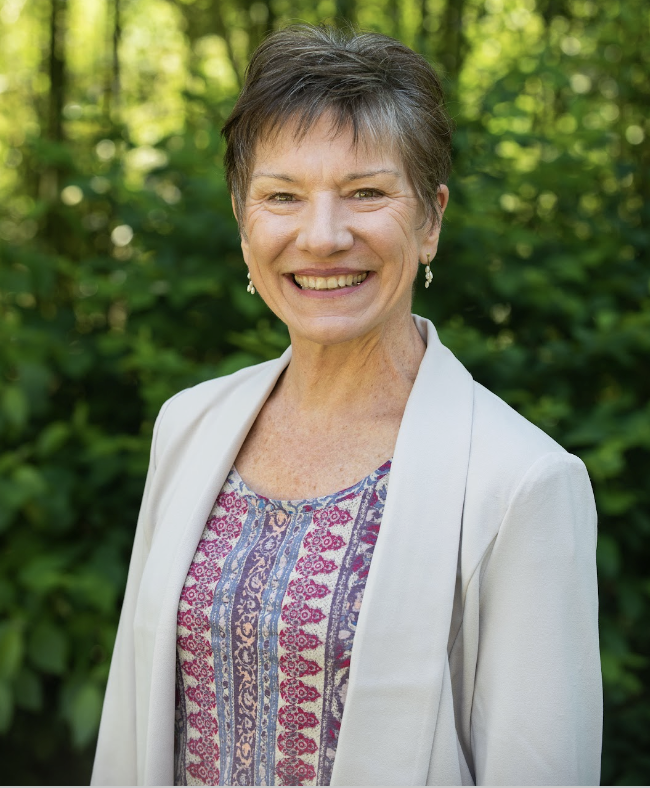
Nancy Chaney
Nancy Chaney has a diverse nursing background that includes hospital, clinical, and private duty services. She holds an MS in environmental science and served two terms as mayor of Moscow, Idaho. During her tenure as mayor, she also served in associated state, national, and international leadership roles. Nancy currently volunteers for various organizations, including the One Health Advisory Board, which links human, animal, and environmental health. She lives in North Idaho, where she and her husband own a veterinary specialty business.
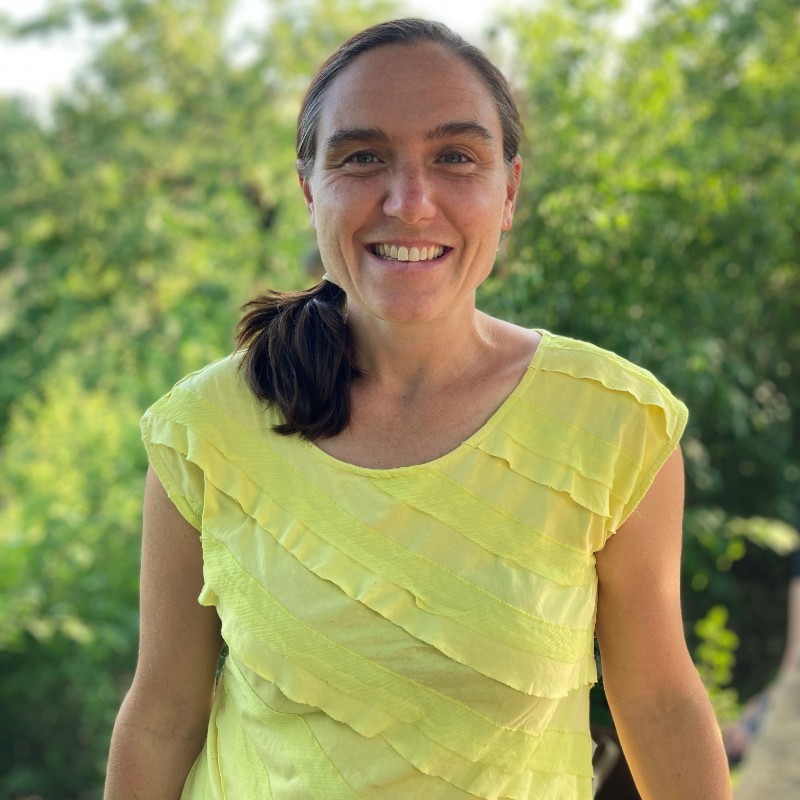
Catherine Graeve
Catherine Graeve is an associate professor of nursing at St Catherine University in St Paul, Minnesota, where she teaches population-based nursing, global health, and mental health. She leads clinicals at local public health departments, a community jail and environmental health-based projects such as lead abatement. She also works as a hospice nurse. She has a doctorate in environmental and occupational health nursing. She studied chemotherapy safety for her dissertation and has served as a community liaison for a research project on environmental exposures during pregnancy and subsequent health outcomes on children. Prior to this, she worked as an oncology and bone marrow transplant nurse.
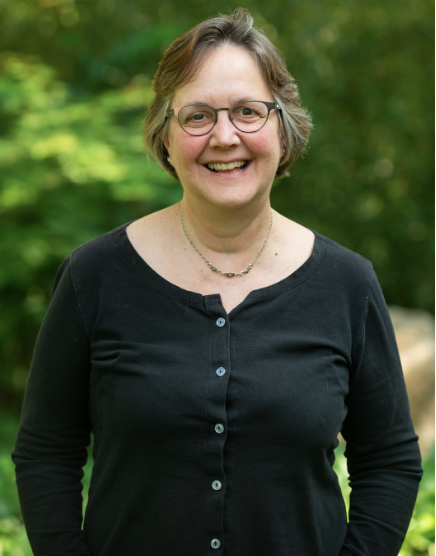
Ruth McDermott-Levy PhD, MPH, RN
Ruth McDermott-Levy, PhD, MPH, RN is an associate professor and director of the Center for
Global & Public Health at Villanova University. Her area of expertise is public health nursing focusing on global and environmental health. She was a co-author of the ANA, 2012 Resolution, “Nurses’ Role in Recognizing, Educating and Advocating for Healthy Energy Choices” and an editor of ANHE’s American Journal of Nursing awarded Book of the Year, Environmental Health in Nursing. Ruth has conducted research in Pennsylvania’s fracking communities and published about including environmental health and climate change in the nursing curriculum. Currently, she is collaborating with an environmental science colleague to examine residential air quality of university students. In January 2019, Ruth returned from Finland as a Fulbright Scholar where she examined nurses’ observed health impacts of climate change. She also worked with Finnish nurses to link climate change to health and address mitigation and adaptation strategies.
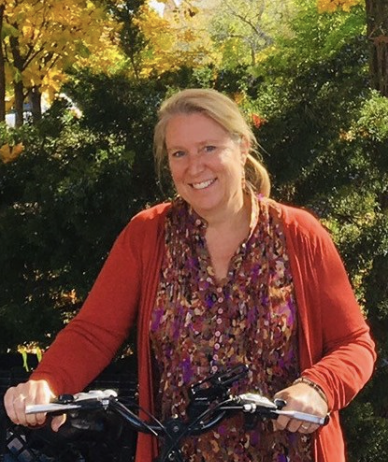
Lynelle Phillips RN, MPH
Lynelle Phillips, RN, MPH has a nearly 30 year career studying and working in public health with an emphasis in infectious diseases and environmental health. She has worked for CDC in various roles including environmental health scientist, nurse consultant and public health advisor. She is currently an Assistant Professor at University of Missouri and teaches Environmental Health, several Epidemiology courses and Health Ethics. She also coordinates the MPH Internship Program and has lead several study abroad trips to Ghana.
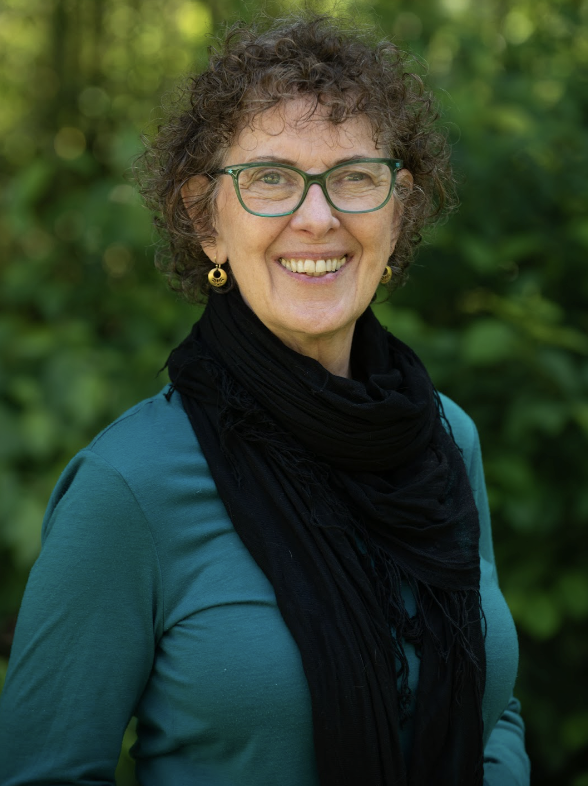
Barbara Sattler RN, DrPH
Barbara Sattler, RN, DrPH is a Professor in Public Health at the University of San Francisco and a nursing leader in the area of environmental health, including issues related to climate change. She has been an advisor to the EPA’s Office of Child Health Protection and the National Library of Medicine for informational needs of health professionals on environmental health. Dr. Sattler was a founding member of the Alliance of Nurses for Healthy Environments. Under her leadership, ANHE has played an important role in the fight against fracking by alerting policymakers and the public to the detrimental health impacts of the chemicals used in fracking on the communities nearby.
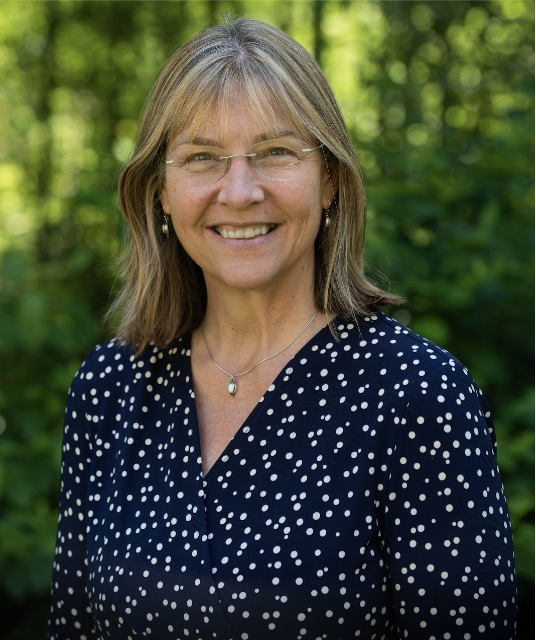
Beth Schenk PhD, MHI, RN-BC, FAAN
Beth Schenk PhD, MHI, RN-BC, FAAN is Providence-WSU Nurse Scientist/Sustainability Coordinator, based at St. Patrick Hospital in Missoula, Montana. Beth leads nursing research efforts across the 50-hospital Providence St. Joseph Health system, and is an assistant research professor at the Washington State University College of Nursing. Her primary professional and research focus is on the environmental impacts of healthcare, particularly nursing practice. She serves on the board of the Alliance of Nurses for Healthy Environments, where she co-chairs the Practice Workgroup, and she produces and hosts the Nurses for Healthy Environments podcast.
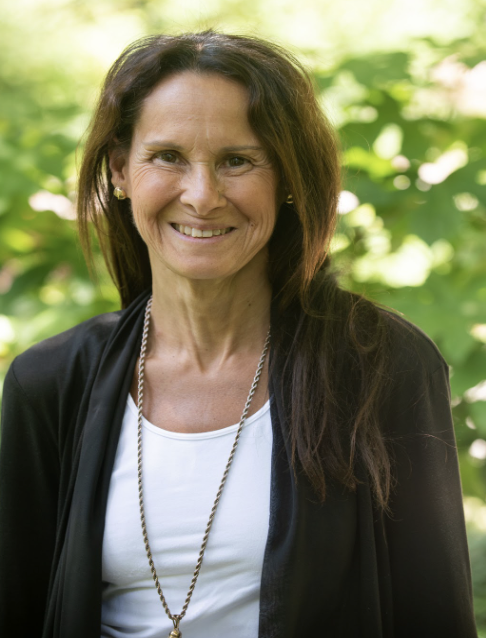
Adrienne Wald EdD, MBA, RN, MCHES, CNE
Adrienne Wald, EdD, MBA, RN, MCHES, CNE is an associate professor of nursing at the College of New Rochelle in New York teaching health promotion, research, and leadership. Her clinical background is in oncology nursing and she has served as a health services administrator at the American Red Cross (Greater New York). A longtime tobacco control advocate, she works to advance health policy for disease prevention and wellness, and promote social justice. Dr. Wald’s research interests include weight management and physical activity epidemiology. She is a member of the American College of Sports Medicine (ACSM) currently serving as an evidence analyst for a position statement on exertional heat-related illness, is a member of the Exercise is Medicine™ Education Committee, and the Exercise is Medicine on Campus® initiative. She is a member of the American Public Health Association (APHA). Her research has been published in the Clinical Journal of Oncology Nursing, American Journal of Health Promotion, and Journal of Nursing Scholarship and Nursing Economic$. She holds a Doctor of Education (EdD) from Teachers College Columbia University, MBA in healthcare management, and BSN from Boston University.
